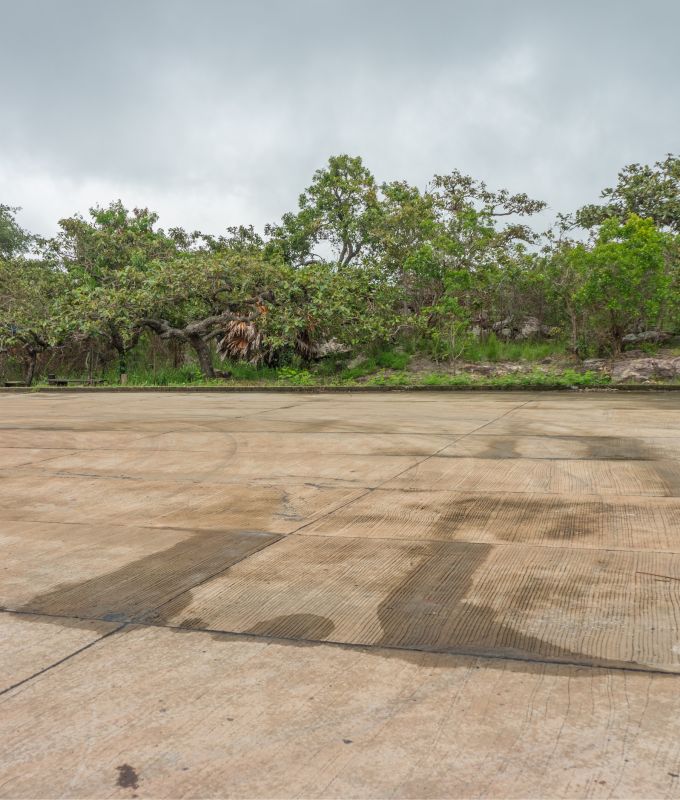Ultimate Guide To Products For Concrete Installation Success
Learn about top tools and materials that are essential for achieving professional-grade concrete installations effortlessly.
 Concrete installations are fundamental to various construction and renovation projects, ranging from driveways and patios to foundations and walkways. Selecting the right products for concrete installation can significantly influence the durability, safety, and overall quality of the finished project. Whether you're a professional contractor or a DIY enthusiast in Freehold, NJ, understanding the range of available tools and materials is essential.
Concrete installations are fundamental to various construction and renovation projects, ranging from driveways and patios to foundations and walkways. Selecting the right products for concrete installation can significantly influence the durability, safety, and overall quality of the finished project. Whether you're a professional contractor or a DIY enthusiast in Freehold, NJ, understanding the range of available tools and materials is essential.
Top Overall Option
Concrete Forming System
A versatile concrete forming system provides a reusable and adaptable framework for shaping concrete structures. It allows for precise form creation, supports various project sizes, and can be configured to fit different designs. This type of product is essential for achieving consistent, professional-looking results and can be used in multiple applications such as sidewalks, slabs, and walls.
Types of Products For Concrete Installations
Concrete Forms
Reusable molds that shape poured concrete into desired structures, available in various materials such as plastic, metal, or wood.
Reinforcing Steel (Rebar)
Steel bars or mesh used to strengthen concrete and improve its tensile strength.
Concrete Mixers
Equipment used to mix concrete thoroughly, ensuring a uniform consistency for pouring.
Curing Compounds
Chemicals applied to concrete surfaces to retain moisture and facilitate proper curing.
Vibrators
Tools that eliminate air bubbles and ensure proper compaction of poured concrete.
Trowels and Floats
Hand tools used for finishing and smoothing the surface of concrete.
Expansion Joints
Materials inserted to allow for movement and prevent cracking in concrete slabs.
Form Release Agents
Chemicals that help remove forms easily without damaging the concrete surface.
Concrete Sealers
Protective coatings that enhance durability and appearance of finished concrete.
Anchor Bolts
Fasteners used to attach structures securely to concrete surfaces.
Concrete Cutting Tools
Equipment such as saws and grinders used for precise cutting and finishing of concrete.
Leveling Devices
Tools like laser levels or screeds that assist in achieving even surfaces.
Form Braces and Supports
Structural components that stabilize forms during concrete pouring.
Drainage Products
Grates, pipes, and channels designed to manage water flow in concrete installations.
Concrete Admixtures
Additives that modify concrete properties, such as setting time or workability.
Surface Retarders
Chemicals that delay surface curing to create decorative textures or expose aggregate.
Popular Choices
Pre-mixed or custom-blended concrete suitable for a variety of applications.
Woven steel mesh used to reinforce slabs and foundations.
Portable or handheld vibrators to ensure proper compaction of poured concrete.
Product that facilitates easy removal of forms after concrete sets.
Insulating covers that help retain moisture during curing.
Complete set of hand tools for finishing concrete surfaces.
Flexible strips or foam used to prevent cracking.
Protective coating to enhance surface durability.
Power saws designed for cutting hardened concrete.
Tools used to smooth and level freshly poured concrete.
Fasteners for attaching fixtures or structures to concrete.
Braces and supports to stabilize forms during pouring.
Components to manage water runoff in concrete areas.
Products to modify concrete's setting time or workability.
Chemicals to create decorative exposed aggregate finishes.
A successful concrete project begins with proper planning and the right selection of products. This includes choosing suitable forms, reinforcement materials, curing compounds, and finishing tools. Each component plays a vital role in ensuring the concrete sets correctly, maintains its structural integrity, and achieves the desired aesthetic appearance. Investing in quality products can help minimize issues such as cracking, uneven surfaces, or premature wear.
Throughout the process, attention to detail and adherence to best practices are crucial. Properly prepared surfaces, correct mixing ratios, and timely application of curing agents contribute to the longevity of the installation. Additionally, safety gear and support tools are necessary to protect workers and facilitate smooth operations. By carefully selecting each product type suited for concrete work, you can achieve results that meet your project goals and withstand the test of time.
In Freehold, NJ, there is a wide array of products available to support all stages of concrete installation. From initial site preparation to finishing touches, the right tools and materials can make a significant difference. Consulting with local suppliers or experienced professionals can provide valuable insights tailored to the specific conditions of the region, such as climate and soil type. With the proper products and techniques, your concrete project can be both successful and efficient.
Key Buying Considerations
- Project scope and size to determine the quantity and type of products needed.
- Material compatibility with existing structures or specific project requirements.
- Durability and weather resistance suitable for outdoor or indoor use.
- Ease of use and compatibility with your skill level or professional standards.
- Reusability and long-term cost-effectiveness of forming systems and supports.
- Safety features and ergonomic design of tools and equipment.
- Availability of replacement parts or accessories for maintenance.
- Product certifications or standards that ensure quality and safety.
- Compatibility with regional climate conditions, such as freeze-thaw cycles.
- Ease of cleaning and maintenance after project completion.
- Environmental conditions that may influence curing times and product performance.
- Storage requirements for materials, especially for long-term projects.
- Budget constraints balanced with quality and performance expectations.
- Supplier reputation and customer support availability.
- Compatibility with other construction materials used in the project.
